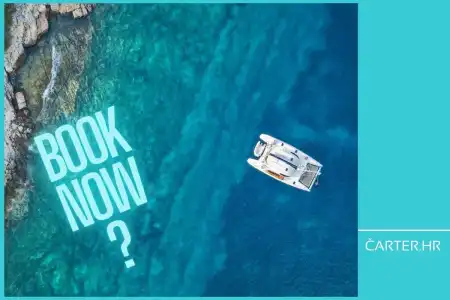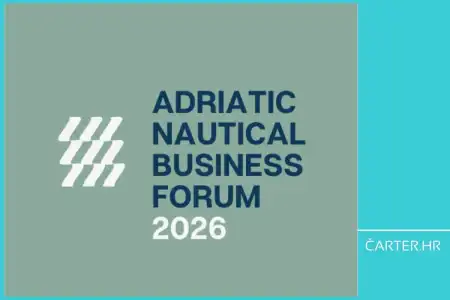
Who is it intended for, and who can apply for the first support program for the tourism sector? Find out what the goal of this grant is and whether grants of this type should be "better".
The beginning of the second quarter brought the first program of support to the tourism sector by the Ministry of Tourism and Sports, entitled Competitiveness of the tourism economy and to encourage investment in the green and digital transition of entrepreneurs in tourism.
It's important for the nautical charter industry because one of the support measures from EU sources specifically and explicitly refers to cruise ships and the other to agencies registered in the central register.
The third measure is based on these two, intended to improve restaurant operations.
The program is intended for small economic entities - companies, trades and cooperatives - meaning those who meet two of the three following criteria in the previous business year:
- they employed up to 50 employees
- they achieved revenues of up to 8 million euros
- they had a total asset value of up to 4 million euros
One applicant can only apply for one grant.
Applications are open from April 5th until May 5th 2023, online through the TuRiznica service on the eCitizens system.

1. Subsidies for cruising vessels
Eligible costs are:
- investment in equipment or devices for seawater desalination on the vessel
- investment in equipment or devices for biochemical purification of wastewater on the vessel
Applicants must have a registered activity according to National Occupation Classification (NKD) 50.10 – Maritime and coastal transport of passengers.
The lowest amount of support that can be awarded is EUR 6,000.00, and the highest amount is EUR 20,000.00.
The total amount of allocated funds is EUR 600,000.00, which means that theoretically, 30 different applicants can apply for the maximum amount of support.

2. Subsidies for agencies
With this measure, two groups of activities are financed.
Investments in the green transition of the provision of agency services have as acceptable costs the procurement of equipment for the realisation of package arrangements, excursions and events, including the program for people with disabilities. For example, this equipment can be related to mountain, recreational, hunting and fishing activities, which contributes to the safety of tourists and pollution prevention and is possibly biodegradable.
Investments in digitising and improving agency services include procuring IT hardware and software that contributes to the digital transition and introduces opportunities such as contactless billing, online reservations and similar solutions to enhance business. It is also possible to finance the purchase of software for online presentations and applications, virtual reality, and programs for guiding and informing tourists.
Applicants must have a registered main activity according to NKD 79.1 – Activities of travel agencies and organisation of tour operators.
The range of grants awarded is from EUR 4,000.00 to EUR 8,000.00.
The total available funds are EUR 400,000.00, or 50 maximum grants.

3. Subsidies for restaurants
The first part of the incentive in this measure refers to investment in energy-efficient material assets and the green transition of hospitality facilities.
These can be:
- replacement of food and beverage preparation equipment of energy class B, C and D to more energy efficient ones, i.e. class A, A+, A++ and A+++
- costs of replacing and purchasing more energy-efficient heating systems, lighting and renewable energy sources - LED lighting and smart lighting, air conditioning, heat pumps and the like
- the costs of replacing and acquiring new equipment related to environmental protection and the circular economy, such as food waste reduction devices and water reduction or wastewater recycling devices
The second part refers to investments in digitisation and improvement of work processes, i.e. in hardware and software that:
- contributes to digital transition and business organisation
- enables control and monitoring of energy consumption
- enables the introduction of contactless payment, online ordering and the like
Applicants who have a registered main activity according to NKD 56.1 Activities of restaurants and other establishments for preparing and serving food are eligible.
A total of EUR 1,654,455.00 has been allocated for this program, and grants range from a minimum of EUR 6,000.00 to a maximum of 25,000.00. So, it is possible to distribute maximum subsidies to 66 restaurants.
Should these supports be more generous?
The green and digital transition is a strategic determinant of both the European Union and the Republic of Croatia.
As much as any non-reimbursable support is welcome, it's difficult to escape the impression that in the interest of this goal, the said support should have been more generous and targeted at specific areas.
While subsidies for vessels can refer to the sector that needs them, which operates on the Adriatic, grants for restaurants and agencies are intended for practically all such entities throughout Croatia.
The National Recovery and Resilience Plan has provided grants for HRK 1.25 billion, or EUR 165.9 million, to strengthen sustainability and encourage entrepreneurs' green and digital transition in the tourism sector until 2026. This program will spend 1.57% of the planned amount, and it is unknown whether there will be more similar incentives this year.
In the interest of ecological and economic goals, funds should be allocated to improve vessels' safety and all other tourism stakeholders operating on the Adriatic.
Nautical charter is a branch that brings high revenue, recovers the fastest from any adversity, attracts a clientele of upper middle and higher profile, and achieves publicity like few other types.
We are a tourist power, and in nautical tourism, a world superpower, it's time to start behaving like this through more extensive investments in infrastructure in the vital sector.
The sea is a valuable resource and returns many times over if it is approached in the right way.
Categories of trends
- News
- Sale
- Marketing
- SEO
- Web design
- Social media
- Technology
- Regulations
- Management
- Education
- Finances
- User experience
Newsletter
Sign up for the newsletter and receive the latest trends and tips straight to your inbox




